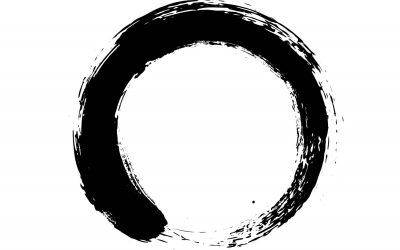What is the use of Zen? Why practice Zen? What is Entsuan Zen “selling?” Shozan addresses these questions as well as the idea of “religious window shopping in this article.”
As a consequence we tend to be rather cynical about enterprises that are not frankly commercial. We tend to suspect there’s an “angle,” that someone is “getting away” with something behind an altruistic front. We want proof that an apparently religious figure is beyond worldly concerns, in particular the monetary. But there’s a paradox here. If a religious person lived alone on a mountain, eking out an existence on the barest of means, how many followers would he or she attract nowadays? How many would take up the utterly simple lifestyle of Buddha or Jesus or Socrates? The contradiction is that while we want our heroes and heroines to be free of worldly ambitions, unless they attract a larger following via an appeal to worldly ambitions, we don’t think of them as “successful.” And if they are not successful, what could they possibly teach us?
So, what is Entsuji selling? Nothing! Unlike most religions, Zen Buddhism does not promise anything you can’t get aside from your own endeavors. It doesn’t promise you immortality, to save you from hell, to reserve a seat for you in heaven on the right side of God. Nor, in a lesser vein does it hold out images of a longer life, perfect health, heightened or supernatural mental powers, a stronger or more beautiful body, and so forth.
If it offers nothing it follows that Zen Buddhism probably doesn’t attract as many followers as other religious practices. True! In Japan, Zen is a minor branch of Buddhism and Rinzai is a minor branch of Zen. Yet, despite its minor role, many have acknowledged that over the centuries Zen has had a quiet but major influence on the development of arts and skills in China, Japan, Korea and other north Asiatic countries.
If Zen can offer nothing apart from your own endeavors, what’s the use of it? For people of the caliber of Shakyamuni (Buddha) or Krishnamurti, who with powerful wills and clear intellects can come to a deep realization on their own, Zen, as a group practice, may be superfluous. But most of us are spiritually lazy Someone may say, for example,” I don’t need a church or temple; I can meditate or worship much better on my own while taking a walk in the country.” Ask him or her how often that occurs and you’ll probably find that it’s more of an ideal than an actual practice.
Practicing together with others helps overcome our innate laziness. Additionally from its refinement through many centuries in many cultures, Zen has developed a wonderfully integrated system for helping people overcome distractions and focus on the hard work of examining the apparently separate reality of “self” and “world” (or “things”).
Many people like the idea of Zen, like to talk about the Zen of this or that activity. Along with this goes the contemporary custom of religious window-shopping. “Let’s drop in on the Zennies and see what they offer.” But, genuine Zen must be practiced, not merely looked at though a window. So, when it comes to parking one’s rear end on the cushions, making peace with ones body in a seated but erect position, lowering one’s somatic center and slowing one’s breathing, then beginning to confront without distraction the junk of one’s mind . . . well, goodbye! Some other practice is less demanding, more colorful, more promising, or whatnot. But whatever it is called, ultimately Zen is you, your true nature. Running away from Zen (in the deepest, nameless, doctrine-transcending sense of “Zen”) is actually trying to escape yourself.
For more articles about Zen philosophy, click here.




